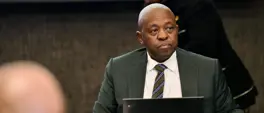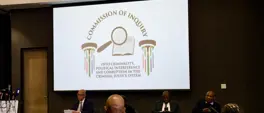Cancelling a lease? Here’s what you need to know about notice, penalties and deposits
Amy Fraser
5 May 2025 | 14:15It's better to be safe than sorry.
CapeTalk's Pippa Hudson interviews Marlon Shevelew, Director of Marlon Shevelew and Associates Incorporated.
Listen below:
There are various reasons why a tenant may wish to terminate a lease agreement early.
According to the Consumer Protection Act, consumers have the right to cancel fixed-term agreements – including residential leases that exceed one month in duration – by providing at least 20 business days’ written notice.
"It's got to be fixed-term and then you can give 20 days' notice."
- Marlon Shevelew, Director – Marlon Shevelew and Associates Incorporated
It is important to note that while landlords may impose a cancellation penalty, such penalties must be reasonable and cannot be automatic or fixed in advance.
Shevelew explains that the penalty can only be calculated once the cancellation notice has been given, taking into account the specific circumstances.
"A fixed penalty, even if it's in the lease agreement, would not be correct, because you can't have a pre-determined penalty."
- Marlon Shevelew, Director – Marlon Shevelew and Associates Incorporated
If a landlord unlawfully withholds a rental deposit, tenants have several options for recourse, including:
- Sending a formal demand for repayment
- Lodging a complaint with the Rental Housing Tribunal
- Approaching the National Consumer Commission
"We have opportunistic landlords who believe just because they've got a deposit sitting in the bank account, that suddenly it becomes their money. It's never their money."
- Marlon Shevelew, Director – Marlon Shevelew and Associates Incorporated
Scroll up to the audio player to listen to the interview.
Get the whole picture 💡
Take a look at the topic timeline for all related articles.















